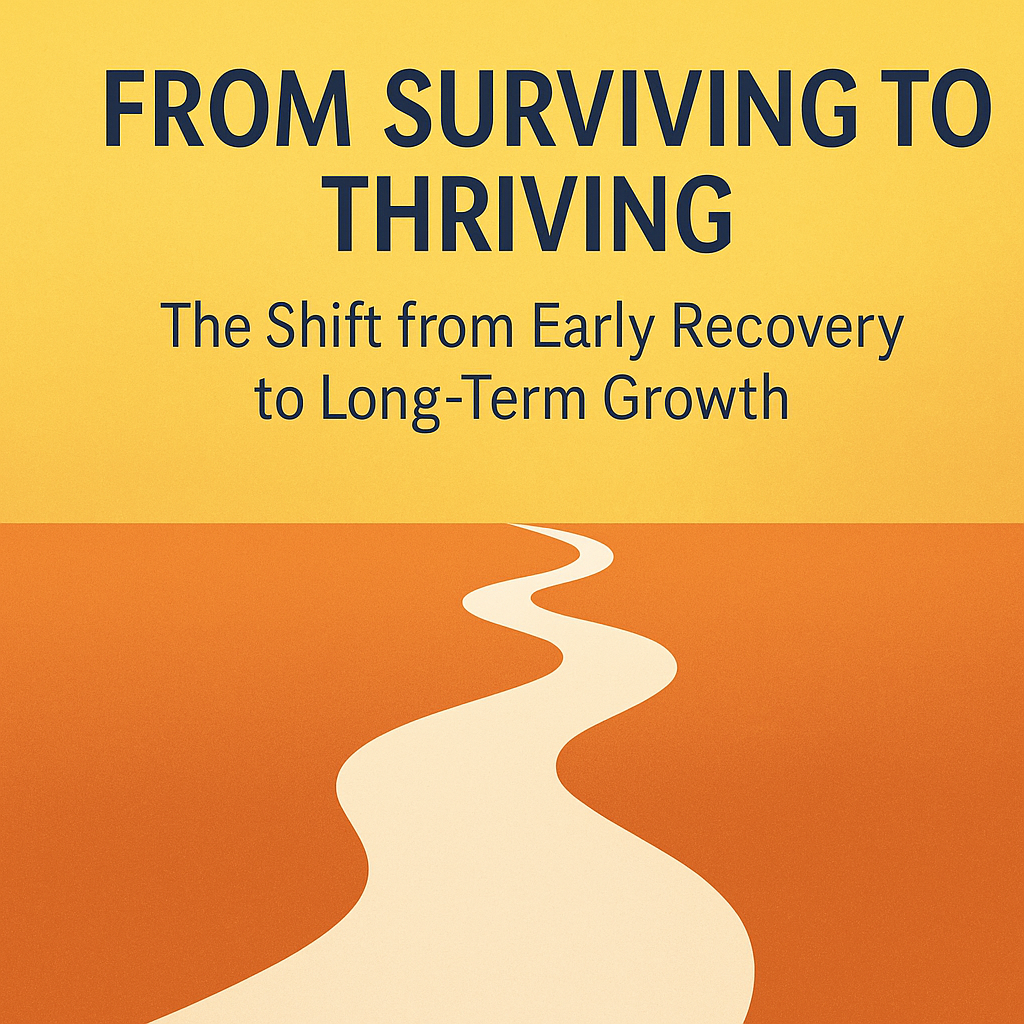No products in the basket.
Uncategorized
From Surviving to Thriving: The Shift from Early Recovery to Long-Term Growth
From Surviving to Thriving
In the early stages of addiction recovery, the focus is often simple and crucial: just get through today. For many, this initial period is about survival—staying sober, staying safe, showing up. And rightly so. Those first steps are vital. But recovery doesn’t stop there. True healing is not just about removing substances—it’s about rebuilding a life you want to stay sober for.
At ARC Fitness, we talk about the journey from surviving to thriving. Because while early recovery is about stabilisation, long-term recovery is about transformation.
The Stages of Recovery: Survival First
Early recovery is a critical time. The brain and body are still healing. Emotions are raw. Trust—in yourself and others—may be low. During this stage, the focus is often on:
- Managing cravings
- Avoiding high-risk situations
- Building basic structure and routine
- Engaging in therapy or support groups
- Re-establishing sleep, nutrition, and movement habits
This is the survival zone. It’s about creating safety. But survival, while essential, is not the destination.
When Survival Becomes a Ceiling
The danger in recovery is getting stuck in survival mode. Staying so focused on “not relapsing” that life becomes about avoiding risk rather than pursuing growth. But recovery isn’t meant to be lived in fear—it’s meant to be lived with purpose.
The shift from surviving to thriving is about moving from avoidance to engagement:
- From “I can’t drink or use” to “I get to build a meaningful life.”
- From focusing solely on staying away from harm to actively leaning into hope, goals, and connection.
What Thriving Looks Like in Recovery
Thriving doesn’t mean perfection. It means growth. It means asking, “What’s next?” instead of “How do I hold on?”
Thriving in long-term recovery includes:
- Setting meaningful personal or professional goals
- Deepening relationships and building new connections
- Developing skills, hobbies, or passions
- Giving back—through mentorship, volunteering, or advocacy
- Prioritising health, fitness, and wellbeing
- Building emotional resilience and mental fitness
It’s about shifting the focus from what you’re avoiding to what you’re creating.
Growth Mindset vs Fear Mindset
Thriving requires a mindset shift:
- Fear mindset: “I can’t fail. If I slip, it’s all over.”
- Growth mindset: “Every experience is feedback. I’m learning and improving.”
The growth mindset allows room for mistakes, setbacks, and self-compassion. It recognises that recovery is not linear. Thriving isn’t about never struggling—it’s about continuing to show up and move forward.
How ARC Supports the Shift to Thriving
At ARC Fitness, we help clients go beyond just surviving. Our programmes aren’t just about abstinence—they’re about empowerment, purpose, and progress. We integrate:
- Structured fitness and wellness programmes to build discipline and resilience
- Personal development workshops to enhance confidence and skills
- Community support to foster connection and accountability
- Recovery-focused coaching to encourage long-term vision and growth
We don’t just ask, “How are you staying sober?” We ask, “What are you excited about? What are you working toward?”
Final Word: Beyond Survival
Survival is the first victory, but it’s not the last. The real goal of recovery is not just to avoid relapse. It’s to build a life so meaningful, so aligned with your values, that going back simply doesn’t fit the vision.
Thriving means becoming the person you were always capable of being—strong, connected, purposeful, and free.
Ready to move beyond survival? Reach out to us at ARC Fitness. Let’s start building the next chapter of your recovery journey—together.

